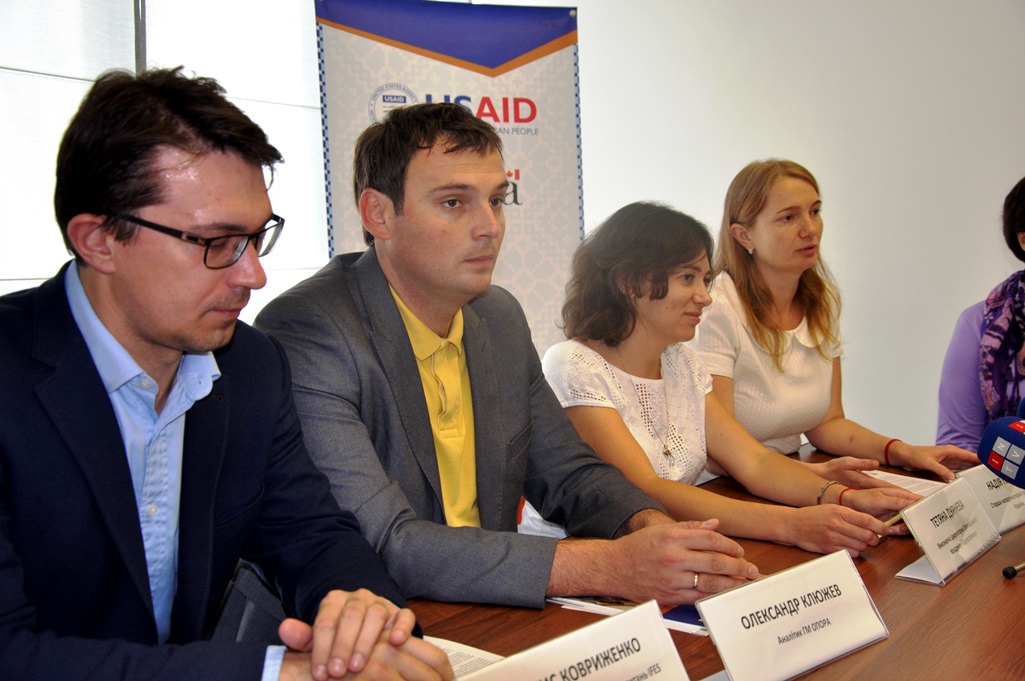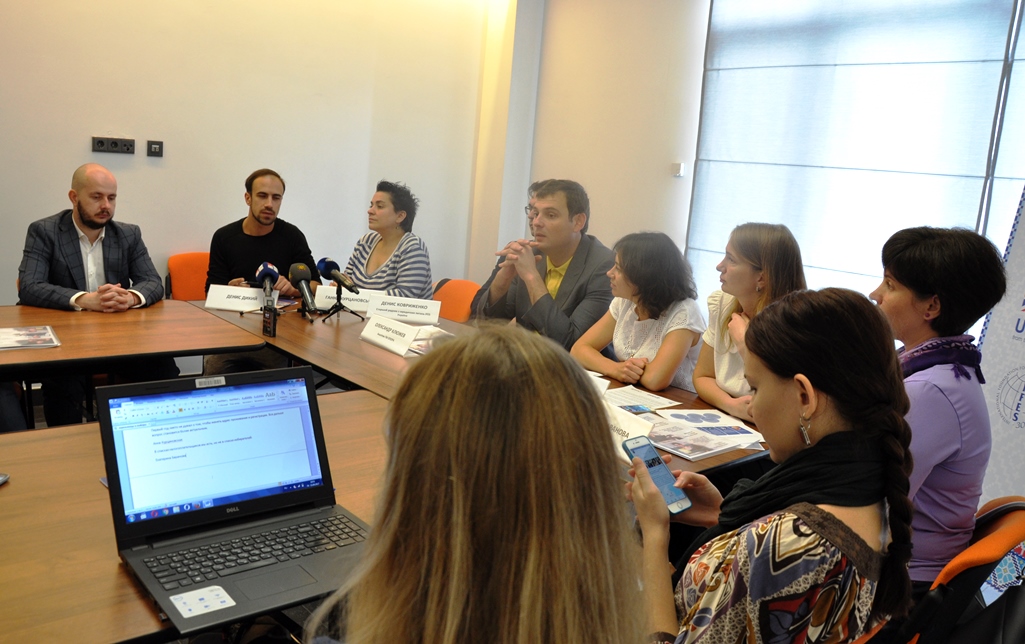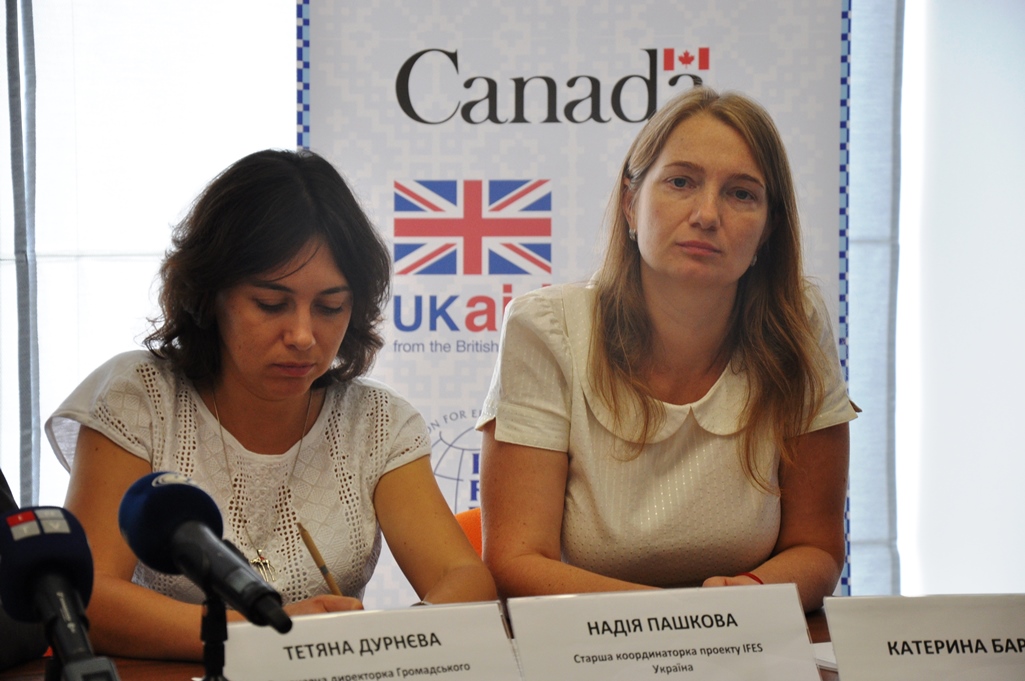Denys Kovryzhenko, Senior Legal Advisor at the International Foundation for Electoral Systems (IFES) has stated that the problem of electoral rights is quite obvious today. He said that two categories of citizens, IDPs and migrant workers, can realize their right to vote on local elections only at registration address.
“Therefore, non-governmental organization, which are present here, have developed the draft law #6240 to resolve this issue, which has already been registered in the Parliament. It suggests quite efficient mechanisms for problem solution,” – Mr. Kovryzhenko said.
A citizen may appeal with documents proving his residence address to a State Voter Register maintenance body, in order to change the address permanently.
OPORA's Analyst Oleksandr Kliuzhev has mentioned, that some politicians commented on the regulation of situation with IDPs' electoral rights using the arguments concerning possible wide-scale violations. However, the Analyst emphasized, restriction of citizen rights should not be justified by the fact that the law-enforcement system can not prevent the violations effectively.
“We believe that the mechanisms, allowing to prevent violations in this election process and any future one, are already present. We have included a number of time constraints for submission of applications concerning the change of election address. Besides that, we established a restriction for an uncontrolled change of voting address. Such limitations seem too rigid for some experts, but be are convinced they are necessary to both resolve the problem and avoid deliberations around potential violations. According to the draft law #6240, a voter may apply for the change of election address in the period between elections, independent of any regular or early election. This mechanism is aimed to give the citizens an opportunity to integrate into the communities where they reside, but not to give the certain politicians a chance to mobilize the voters right before the voting day or before the election campaign. Thus, we have included a restriction prohibiting to change the election address later than the 5th day of the election process,” – Mr. Kliuzhev said.
Nadiia Pashkova, Senior Coordinator at the International Foundation for Electoral Systems (IFES), has mentioned that there many consultations were held, discussions with election law experts were conducted and international experience was studied in the process of draft law development.
“While developing the draft law, we held many consultations, conducted discussions with election law experts, and studied the international experience. We consulted with the Central Election Commission and the State Register of Voters. This is how the bill was developed. We believe that it is in line with international standards, and will help the citizens integrate into communities and participate in elections,” – Ms. Pashkova stated.
Executive Director of Hrupa Vplyvu Civil Holding Tetiana Durnieva has mentioned that 24 MPs, both non-faction MPs and representatives of every faction, supported the draft law #6240 by signing it.
“It received a positive opinion of the Central Scientific Expert Office, and the Committee on Human Rights, National Minorities and International Relations recommended the competent Committee on Legal Policy to speed up the consideration of draft law #6240. However, the Committee on Judicial Policy and Justice hasn't responded yet and, therefore, the bill is not on the agenda of the Committee,” – Tetiana Durnieva said.
Internally displaced persons have also participated in the event, and told about their life stories and integration on Kyiv after leaving the occupied territories, emphasizing the need to protect their electoral rights.
We remind that the draft law #6240 was registered in the Verkhovna Rada of Ukraine on 27 March 2017. This document suggests amendment of the Law of Ukraine on the State Register of Voters, Law on the Rights and Freedoms of Internally Displaced Persons, and Law on Local Elections, goaled to guarantee voting rights of internally displaced persons and other mobile groups in the country.
The draft law was developed by experts of the Civil Network OPORA AUNGO, Hrupa Vplyvu Civil Holding NGO, International Foundation for Electoral Systems (IFES), MPs of Ukraine, and with participation of representatives from NGOs Donbass SOS, Human Rights Information Center, Crimea SOS, the Right for Protection Charitable Foundation, and East-SOS Charitable Fund. Besides that, members of the Interdepartmental Working Group on improvement of IDPs human rights legislation under the Ministry of Temporarily Occupied Territories and IDPs Affairs (including representatives of UN Refugee Agency and the Council of Europe) also participated in discussion of the draft law.
24 MPs have put their signatures under the draft law, namely Hryhorii Nemyria, Mustafa Naiiem, Svitlana Zalishchuk, Refat Chubarov, Mustafa Dzhemiliev, Ostap Yednak, Hanna Hopko and others. There are both unaffiliated and faction representatives among co-authors of the bill: Petro Poroshenko Bloc faction – 11 MPs, People's Front – 2, AUU Batkivshchyna – 3, Opposition Bloc –2, Radical Party of Oleh Liashko – 1, Samopomich –1, unaffiliated or non-group – 4. Thus, the bill has more chances to be adopted since it is already widely supported by MPs. It should be mentioned, that regional representation of MPs who signed it is also quite wide: city of Kyiv, Donetsk, Lviv, Zakarpattia, Chernihiv, Vinnytsia, Rivne, Cherkasy oblasts and the AR of Crimea.


